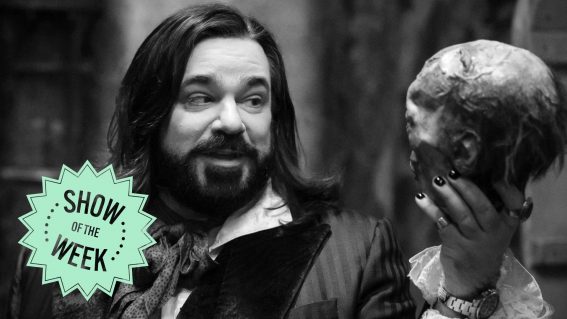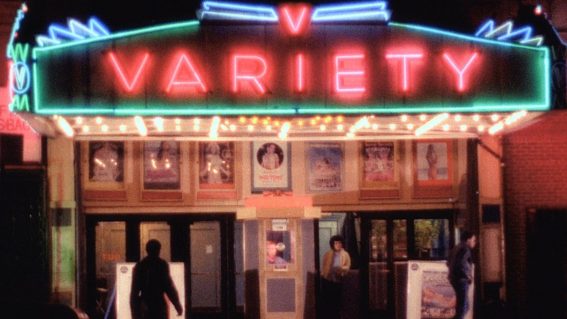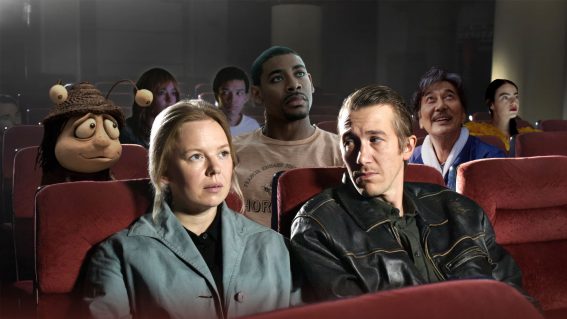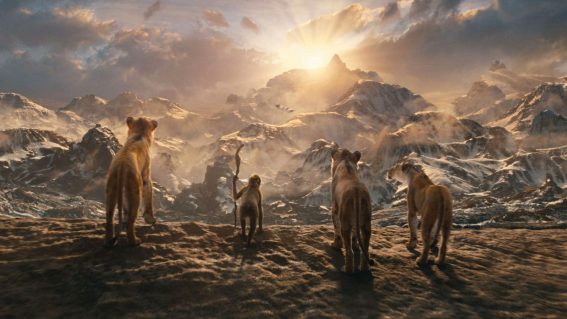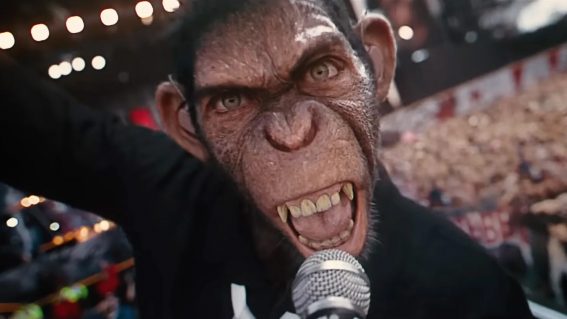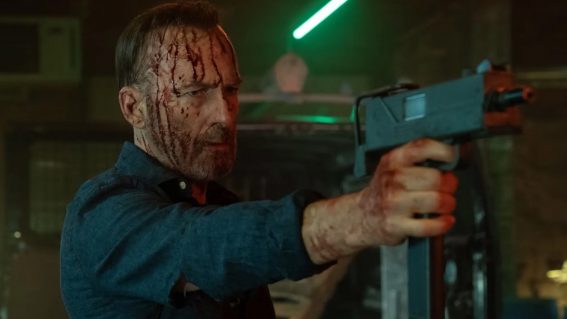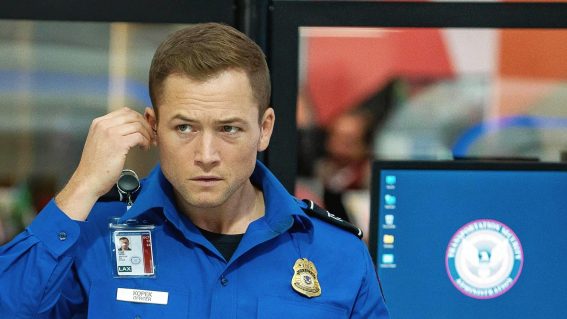Sight, Sound and Mind: The Twilight Zone on the Big Screen
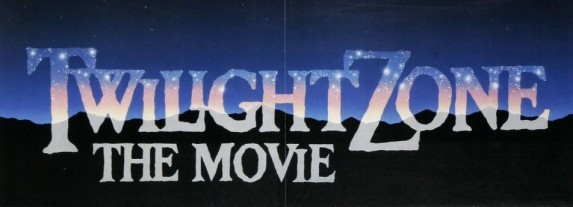
With some movement finally occuring on the Twilight Zone feature film currently in development, I thought it a good time to look back at The Twilight Zone‘s legacy on the big screen.
As avid readers of this blog (hi there mum!) will know, I am currently very obsessed with The Twilight Zone. I recently finished watching all five seasons of the original series on DVD, and have taken to viewing the world through a Rod Serling-influenced prism.
In an age of every recognisable property and it’s dog being made into a film, it seems remarkable that something so deeply ingrained in pop culture as The Twilight Zone isn’t already a contemporary movie.
The three names mentioned as possible directors for the upcoming adaptation (which is being shepherded by Leonardo DiCaprio’s production company, Appian Way) – Christopher Nolan (yes!); Alfonso Cuaron (yes!) and Michael Bay (no!) – exist only as potentials right now, but it suggests the film is closer to getting a greenlight than it once was.
The last official (non radio or book) Twilight Zone property to exist was the one-season-and-gone 2002 TV adaptation, a stinker of a show that represented a depressing low point for the Zone.
Prior to that was the 1985 TV revival, which isn’t held in considerably high regard, but has more than its fair share of classic episodes, and features an awesomely creepy opening sequence in which the classic TZ theme song is interpreted by by the Grateful Dead (the 2002 version was done by Korn. Sigh):
This ’80s show was inspired by the mild success of the infamous 1983 movie adaptation, the legacy of which will be forever assoicated with the death of three actors (two were kids) during filming in an incident that still sparks arguments over culpability.
While the tragedy should in no way be diminished, it feels like the time is right for a critical re-assessment of the film, which is not nearly as well-remembered as it should be, and is frankly great.
The lengthy pre-title sequence of the film (directed by John Landis) is one of my favourite scenes in the history of cinema and possibly the coolest opening to a film, ever.
Dan Ackroyd and a never-better Albert Brooks play a couple of guys on a deserted road at night who decide to pass the time by singing old TV show theme tunes. Eventually Bernard Herrmann’s legendary TZ theme arises, and it sparks a torrent of recollections from the two men.
In addition to getting the jump on Quentin Tarantino with it’s pop culture-discussing dialogue and throwing down the meta gauntlet for the movie that is to follow, this opening sequence is one of the most finely calibrated excercises in uneasy comedic tension ever put to film. Check out the entire sequence here:
http://www.youtube.com/watch?v=HCMMZQFVf4U
Following this opening we go into the first of the film’s four stories, Time Out (also directed by Landis), loosely based on the season three episode A Quality of Mercy. Time Out stars Vic Morrow (Jennifer Jason Leigh’s dad) as a bigoted businessman who casually unleashes a racist tirade at a bar. Shortly after, he finds himself trasnported to various perilous situations where HE is either Black, Asian or Jewish. A relatively straightforward exercise in lesson-learning, Time Out is one of the two weaker stories in the film, and cannot be watched without recalling the aforementioned incident which killed Morrow and two child actors. But the classic Zone moralising present can be appreciated.
The second story is the film’s weakest by far – Kick The Can, directed by Steven Spielberg and inspired by the season three episode of the same name. It focuses on some pensioners at an old folks home who find themselves mysteriously young again when playing the titular backyard game.
Kick The Can reeks of that Cocoon-esque ‘aren’t old people cute?’ vibe that permeated certain movies in the ’80s. As legend would have it, Spielberg was apparently originally going to adapt another TZ story (rumours point to the legendary season one episode The Monsters on Maple St), but changed his mind after the aforementioned on-set deaths, as he didn’t want to do anything that involved kids and violence.
Joe Dante’s crazy awesome It’s a Good Life is the third story. Based on the short story by Jerome Bixby, and previously adapted into a season three episode, it tells the story of a young boy whose ability to read minds and turn thought into reality keeps his family and anyone around him in mortal fear of thinking bad thoughts, lest he “send them to the cornfield”. He can literally do anything, and when the child has that power, it’s a special kind of monster.
The original episode is one of The Twilight Zone‘s best known, and is a remarkably disturbing tale of fear and frustration. For the movie version, Dante lets his Warner Bros. cartoon-influenced mind run crazy with the possiblities, creating a brightly-coloured nightmare of childish whims.
The fourth story, directed by George Miller (Mad Max trilogy; Babe) is the film’s best regarded (although I prefer It’s A Good Life), and it positively sweats paranoid tension. Legendary sci-fi author and Twilight Zone contributor Richard Matheson (author of the book I Am Legend, which inspired George A Romero’s zombie films and has been officially adapted into a movie three times, the most recent starring Will Smith) adapts his short story of the same name for the second time (the first was a season five episode starring William Shatner): John Lithgow stars as a businessman whose irrational fear of flying is enhanced by his spotting a “gremlin” on the wing of the plane.
Lithgow is amazing in this segment, which ends the film on a note of high tension. Although it’s often cited as the only good thing about the movie, I’d urge anyone who hasn’t seen it to watch the whole thing. The legacy of, and reverence for, the original show comes through loud and clear, and this kind of anthology film is far too rare these days. Fright Fest ‘ll notwithstanding.
The new project is apparently focusing on one feature length story, as opposed to an anthology of several shorter ones, but it’s unclear as yet if it’s based on an existing TZ episode or is an original story.
The idea of a single feature-length Twilight Zone story fills me with tentative enthusiasm – the tales have always suited the short half hour format best, and struggled when stretched out beyond that. The original series went to hour-long episodes in season four, and not a single one of them wouldn’t have worked better as a half hour story.
That said, I once read an unattributed rumour that suggested the 1983 movie was at one point going to be a feature-length original story, and that it was going to be a mounting of the script that eventually became the 1988 film Miracle Mile. Miracle Mile is an underrated gem about a man who answers a phone call and is told that the world is about to end. It is an awesome movie that would’ve fit the TZ sensibility nicely, and functions a suitable argument FOR a single feature-length Twilight Zone story, as opposed to an anthology.
Plus there are numerous other films that could be described as feature-length Twilight Zone stories – Steven Spielberg’s Duel (written by Richard Matheson); Cube (1997); The Thirteenth Floor (1999); heck even The Matrix sorta counts, just to name a few.
All of M. Night Shyamalan’s films (well, the earlier ones) could easily be feature-length Twilight Zone films. Devil, the recent release he produced and wrote, especially so.
2009’s The Box, directed by Richard Kelly (Donnie Darko), is a feature-length extrapolation of a Richard Matheson short story (Button, Button), previously adapted for the ’80s Twilight Zone show. The Box got a reaming by critics, but I loved it, and I think Rod Serling would’ve too.
The currently-in-theatres Real Steel is partly based on a Richard Matheson short story titled Steel, which was previously adapted into a season five episode of the original series starring Lee Marvin.
So there’s plenty of ‘official’ TZ material in modern cinema, and it could easily be argued that modern genre storytelling as a whole simply wouldn’t be what it is now without the original Twilight Zone.
Indeed, I have this slightly whackadoodle theory that the original Twilight Zone can function as kind of the Shakespeare of modern genre storytelling – it laid down the foundations of the form. The Twilight Zone did everything first when it comes to sci-fi and fantasy in the visual medium, and anything new must somehow build or comment on what Serling and company achieved.
If Nolan or Cuaron ends up directing a new TZ movie, I’m confident either one of them could push the boundaries even further. Bay, not so much.
Are you obsessed with The Twilight Zone? Which original eps could suit a feature length treatment? Which films would you describe as Twilight Zone-esque? Comment below! Hooray!





